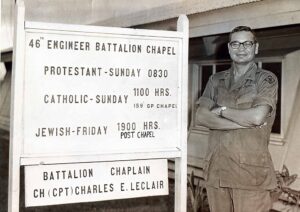
EDITORS’ NOTE: Fred Rogers, creator of “Mister Rogers Neighborhood,” died Feb. 27 at his home in Pittsburgh after a brief battle with stomach cancer. The 74-year-old ordained Presbyterian minister had hosted one of TV’s most child-friendly programs since 1963, encompassing 900 episodes. Rogers’ production company, Family Communications, issued an article suggesting how parents might discuss his death with their children.
PITTSBURGH, Pa. (BP)–In this time of great sadness about Fred Rogers’ death, we understand that parents may be concerned about how to approach the “Mister Rogers’ Neighborhood” series and our Mister Rogers’ Neighborhood website with their children. We here at Family Communications have given this a great deal of thought and have talked with our colleagues in child development and mental health. We’d like to share our thoughts with you.
Reacting to the news
One of Fred Rogers’ ongoing messages has been, “There’s only one person in the whole world like you.” So we understand that every child and adult will experience this news in his or her own unique way, from their own relationship with him and from their developmental level.
Children experience death differently than adults do. Young children have a limited understanding of death. Some children may cry. Some may seem callous. You may be surprised to find that you’re more upset than your child.
Children have always known Mister Rogers as their “television friend,” and that relationship doesn’t change with his death.
Talking with children about Fred Rogers’ death
You know your child best. It’s up to you to judge how much or how little your child needs to be told … or if your child needs to know at all.
Find out what your child knows, has heard, or imagines. Some children may ask, “Who killed him?” Killings are so prominent in the news that they may naturally become linked to any death.
Ask how your child feels about it. Being able to share our feelings — to say “I’m sad” — or “I’m mad” — helps us know that others feel that way and that our feelings are natural and normal.
Start simply. You may want to say something like, “He was very ill and had to have an operation. The doctors worked very hard to help him, and they did everything they could, but they couldn’t help him.” (If you say only, “He was sick and died,” children may worry that you or they might die, too, when you’re “sick” — with the flu or a cold.)
Children will ask if they want more information. It’s okay to say, “I don’t know.”
Because families are so important to young children, they may want to know that Fred Rogers had a loving and caring family. He had a wife, two sons, both of whom are grown and married, and two grandsons. His family helped to care for him all through his illness.
Some children may express disbelief, saying, “But I just saw him on TV.” You can help them understand that when people die, they don’t come back to life, but Mister Rogers put his programs on videotape so they can be shown over and over again.
It’s okay to cry in front of children. Fred Rogers talked about seeing his father grieving when his own father (Fred’s grandfather) died, and that helped him know that it was okay for men to show their feelings. It helps children know that it’s okay for children and adults to cry, but we can deal with our feelings and smile again later on.
Remember that Fred Rogers has always helped children know that feelings are natural and normal, and that happy times and sad times are part of everyone’s life.
Finding comfort in the Neighborhood
Children today have had lots of experience with videos, and they can understand that Mister Rogers made his “television visits” on videotape so that they can be shown over and over. His continuing presence and his acknowledgment of feelings can remain a source of comfort for them.
He also created this website to give children a chance to play about Mister Rogers’ Neighborhood, and playing is a healthy and natural way for children to work through their feelings and concerns.
In fact, children’s loss could be more upsetting if the “Neighborhood” program or “Neighborhood”-related materials are not available to them. Just as people use photos and videos to remind them of a loved one, a television or website visit can remind them of the gentle man who has meant so much to them. We feel truly fortunate to be able to offer these materials so that children and families can continue to be enriched by Fred Rogers’ messages and presence.
Being in touch with us
Sometimes it helps to know there are things we can do. Children and adults who would like to share their messages, pictures, photographs or drawings with the cast and staff of Mister Rogers’ Neighborhood or with the Rogers family may send them to our office: Family Communications, Inc., 4802 Fifth Ave., Pittsburgh, PA 15213. There’s also a place on our PBS Kids website where you or your children can share your thoughts about Fred Rogers at https://pbskids.org/rogers/all_ages/yourturn3.htm. For other information, visit the Family Communications website.
–30–













